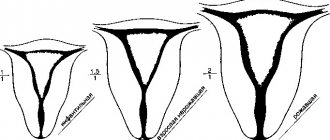In psychology, kleptomania is considered to be a disease, a non-standard addiction in an individual, expressed in a strong desire to “borrow” or steal something at any opportunity. Often, stolen items have no material value, which makes it possible to differentiate between criminal theft and kleptomania. It should be noted that the kleptomaniac is clearly aware of the illegality of his actions and, some time after the committed act, experiences strong pangs of conscience.
Experts are convinced that this rare form of addiction affects both well-to-do people and the poor. The disease is detected both in adulthood and in early childhood. Statistics have shown that females are more susceptible to kleptomania.
It is almost impossible to cope with addiction on your own; moreover, it is often accompanied by mental disorders such as food addictions or phobias. Therefore, at the first signs of kleptomania, a person should immediately seek help from a professional psychologist or psychotherapist.
“The reluctant thief”: who is a kleptomaniac and how to deal with kleptomania
So, when a young aristocrat steals jewelry, we call such theft “kleptomania,” we talk about it with a philosophical smile and don’t even think about sending him to a correctional institution, like a little ragamuffin caught stealing turnips.
George Eliot. Middlemarch
- 1. Kleptomania: characteristic signs
- 2.Kleptomania: reasons
- 3.Symptoms of kleptomania
- 4. “Favorite” things of kleptomaniacs
- 5. Kleptomania in children
- 6. Diagnosis of kleptomania
- 7. Methods of treating kleptomania
- Only introverts can see these hidden images, thanks to their unique powers of observation.
- Introvert - who is it? The whole truth about introverts
- "Rorschach stains" or a test for psychopaths
- Who do you see first? Your answer will show your personality!
- Psychology of color: How each color characterizes personality
The essence of the disease
So, kleptomania: what is it? Sometimes it can be difficult to understand whether theft is a consequence of conscious antisocial behavior or the result of an illness, and what needs to be applied to the culprit: punishment or treatment for kleptomania.
The urge to steal is called kleptomania. This craving is an uncontrollable act that manifests itself spontaneously. A kleptomaniac steals not for the sake of the stolen thing, but for the sake of the process itself.
The term kliptomania is of Greek origin and consists of 2 words: klepto means to steal; mania - madness.
Patients prone to kleptomania report that they steal under the influence of an unconscious hidden order. They get the impression that someone is directing their actions. This action in case of kleptomania must be secret, then it is especially attractive. A kleptomaniac or kleptomaniac, when they steal, receives pleasure similar to the feeling of a drug addict after a dose of drug. But unlike a drug addict who once voluntarily set foot on the path of illness, a kleptomaniac is someone who initially has an upset psyche and is unable to control his behavior during kleptomania.
Establishing diagnosis
Diagnosing kleptomania has its own characteristics. The specialist must exclude the possibility of other diseases that push the patient to commit certain actions, including theft.
Here are signs to help identify kleptomania
:
- The patient is unable to overcome the impulse to steal an object that is not necessary for him and has no value for him. This condition must occur every time.
- The patient feels increasing psychological pressure before committing theft.
- After committing a theft, a feeling of peace and satisfaction follows.
- The theft is not committed out of a feeling of revenge or hostility, or under the influence of hallucinations or delusions.
- Theft is not associated with conduct disorder, antisocial personality disorder, or bipolar disorder.
Causes of kleptomania in adults
The causes of such a strange mental disorder as kleptomania are not fully understood by scientists and doctors. There is no doubt that this is a reaction of the brain, which manifests itself as a result of disruption of intercellular connections and necrosis of nerve cells. The level of production of serotonin and dopamine, which control mood and feelings of joy, decreases. To achieve the desired joy, the sick brain of a kleptomaniac gives birth to such an unusual urge to steal, called kleptomania.
Disruption of nerve connections in the brain during kleptomania occurs in the following cases:
- excessive use of psychotropic drugs;
- hormonal imbalance at the time of kleptomania;
- the presence of a more complex psychiatric disease in addition to kleptomania (schizophrenia, dementia, epilepsy, hysteria);
- childhood complexes (cruel upbringing with the use of physical and psychological violence) lead to kleptomania.
Changes in hormonal levels in pregnant women, as well as in children during the formation of the endocrine and nervous systems, explain the cases of kleptomania in these categories of patients. The “rampant” hormones can be strong even in the premenstrual period (2-10 days before menstruation) and cause monthly bursts of kleptomania in some women.
Psychological portrait of a kleptomaniac
As a result of studying how kleptomania manifests itself, clinical psychologists have been able to create a psychological portrait of a kleptomaniac. The distinctive features of such a person are:
- deviations in the functioning of the nervous system;
- presence of psychiatric diagnoses;
- low self-esteem;
- increased excitability;
- oppressive feeling of loneliness;
- poor development of self-control skills;
- tendency to deviant behavior;
- violation of child-parent and intra-family relationships.
However, not every person with the listed personality traits is a kleptomaniac.
Kleptomania as a manifestation of manic-depressive psychosis
In some cases, kleptomania is one of the types of mania characteristic of manic-depressive psychosis. This disease is usually inherited in an autosomal dominant manner. Kleptomania is usually transmitted from mother to child. Kleptomania is more common in women. The incidence is 7 cases per 1000 people. Psychosis manifests itself periodically in the form of mania or depression. Between periods of exacerbation of kleptomania, phases of remissions (intermissions) are observed.
The cause of psychosis is a malfunction of the higher emotional centers in the subcortical zone of the brain, a disruption of the processes of inhibition and excitation in the cortex. The provoking role of kleptomania is played by external factors such as a stressful situation, communication with others. Exacerbations of kleptomania can last for weeks, sometimes up to six months.
How to identify a kleptomaniac?
It can sometimes be very difficult to distinguish between a petty thief and a kleptomaniac. Professional thieves know how to pretend to be kleptomaniacs in order to avoid criminal punishment. The determining factor of difference is that a thief steals for the sake of appropriating money or objects, while a kleptomaniac cares about the process and his experiences during the theft.
A person who steals due to mania does not have criminal intent, but commits theft for the release of dopamine, which is a precursor of adrenaline. When the effect of adrenaline ends, kleptomaniacs enter a stage of repentance, discomfort, and remorse. There are cases when kleptomaniacs return to the place of theft to put the stolen things back, or get rid of them by any means.
It is known from criminal practice that in the home of kleptomaniacs you can find a lot of unnecessary things and various trinkets, which indicates that the theft was not committed with malicious intent.
The tendency to kleptomania does not depend on social status and financial security. Among such thieves you can meet quite wealthy people. The age of kleptomaniacs can also be very diverse; young children and pensioners are susceptible to this phenomenon. The tendency to kleptomania can spontaneously fade away for a while and flare up again.
Experts studying kleptomania have identified the following symptoms in adult patients:
- at the initial stage of kleptomania, after the desire to steal, an internal struggle of the kleptomaniac occurs;
- the tension from the desire to steal increases so much that remorse recedes into the background; this feeling in a kleptomaniac is comparable to the urge to urinate and an attack of diarrhea when there is no toilet nearby;
- at the moment of kleptomania, when committing a criminal act, a release occurs in a sensation close to the pre-orgasmic state or urination/defecation after long-term patience, the kleptomaniac experiences mental and physiological satisfaction;
- after the theft, repentance sets in, in extreme cases - horror that the kleptomaniac’s behavior has gotten out of control;
- a kleptomaniac commits theft only alone, without partners;
- the urge to kleptomania occurs after emotional stress, overwork, and other psychological situations;
- in women of childbearing age, an attack of kleptomania may be associated with PMS;
In the symptoms of kleptomania, patterns and individual characteristics of the patient are noted. The experience of tension and release can be very vivid, and the formed mechanism of an attack in a kleptomaniac can be very stable. In other cases, kleptomania is a way to distract oneself from unpleasant emotions and anxieties. The craving for theft in a kleptomaniac occurs periodically; there are long phases of remission of kleptomania.
Manifestation of the disease
It is important to note that this type of mental illness is quite rare. That is why it is very important to be able to find the fine line between kleptomania and theft. While most thieves pursue mercantile goals, kleptomaniacs act only under the influence of their own emotions. For a kleptomaniac, the process of action itself is very important, and not the result, because it is the action itself that allows the patient to achieve a feeling of euphoria. After committing theft, a person may experience great shame and not find a place for himself, but after some time this episode may repeat again.
Interesting fact: the Guinness Book of Records recorded an act of kleptomania when a Canadian resident stole a cargo tanker weighing more than eleven tons. When the criminal was caught, he could not explain to the police why he needed the ship.
Speaking about how kleptomania manifests itself, it should be mentioned that after committing an act of theft and receiving pleasure, a person begins to try to get rid of the stolen thing. Some patients try to quietly return what was stolen back in order to re-experience euphoria. During the process of theft itself, a person experiences strong stimulation of the nervous system. Patients with kleptomania always act alone and rarely plan their own actions.
Most often, kleptomaniacs commit the act of theft in large stores, where the range of goods is presented in a wide range. According to experts, the disorder in question has a close relationship with fetishism, since the main “catch” of patients is various wardrobe items. Kleptomaniac women most often pay attention to beautiful underwear or cosmetics.
Kleptomania is a mental illness that has three forms of manifestation. Chronic kleptomania is expressed in the form of a constant need to commit various petty thefts. This form of the disease is recorded extremely rarely. Most often, having completed the necessary action, the patient returns to normal life. However, during “remission”, the patient constantly replays in his head the memories of the committed action in order to achieve an emotional uplift. When memories lose their emotional power, the patient goes in search of new prey. The last form of manifestation is characterized as a period of exacerbation, when a person, under the influence of his own needs, commits a whole series of crimes.
According to experts, the percentage of thefts committed by kleptomaniacs is quite low. Most often, the act of theft is committed by ordinary people who have a certain focus on results. Children and teenagers often resort to such actions. Most shoplifters, when caught, try to refer to the presence of a complex mental disorder that prompts them to commit such actions. But here it is important to note that the behavior of such people is radically different from the behavior of kleptomaniacs. Most people with the mental disorder in question perceive the action they perform as a kind of game that brings them pleasure.
To date, there are no clear criteria that could distinguish between kleptomania and theft
It is also important to mention that the habit of trying to “pull off something that doesn’t fit well” is not a manifestation of kleptomania. According to psychologists, such actions can be explained by a peculiarity of the human personality, but not by the presence of a mental disorder. It is important to note that the existence of the disease in question is difficult to prove. This mental disorder has no common features with more common diseases and does not manifest itself in any way in everyday life. Kleptomaniacs often devote most of their lives to serving society. The very act of stealing can cause great discomfort due to feelings of guilt. Often, the feelings they experience force patients to live their lives in complete solitude.
Depending on the cause of the mental disorder, the goals pursued by kleptomaniacs may vary:
- The oral impulse is a behavior model of an adult who is “stuck” in childhood.
- Sexual perversion is one of the ways to achieve sexual satisfaction. The process of theft in this type of kleptomania increases the level of sexual arousal.
- Neurotic disorders - quite interesting is the fact that with this form of the disease, the patient tries to achieve not only material objects, but also various physical conditions. According to research, a disease such as anorexia is a partial manifestation of the disease in question.
What kind of disease is kleptomania? When examining this issue, you should pay attention to how it is transmitted. Despite the lack of documentary evidence, experts are inclined to believe that this mental disorder can be inherited. This theory is confirmed by the fact that many psychological characteristics of people are passed on to their offspring. It is on this fact that the opinions of scientists are based regarding the means of spreading the disease from generation to generation.
Treatment of kleptomania
Such an unpleasant mental pathology as kleptomania should not be ignored and treated. Kleptomania is treated by psychiatry, not psychology. Treatment programs are constantly adjusted in accordance with medical advances.
The program for a kleptomaniac includes the following components:
- psychotherapeutic sessions and group classes aimed at identifying the underlying causes of kleptomania, getting rid of obsessions, rethinking the life values of a kleptomaniac, building the right lifestyle;
- taking drugs that improve brain function, blood circulation, a psychosomatic state is directed against kleptomania (serotonin reuptake inhibitors, recreational drugs, attacks of kleptomania are well reduced by nalterkone);
- switching the kleptomaniac's attention from kleptomania to other interests and hobbies, filling leisure time with exciting activities, hobbies, sports to change the focus of the kleptomaniac;
- teaching kleptomaniacs techniques that allow them to deal with stress, tune themselves to the joys of every day, and form the motivational-volitional component of the kleptomaniac’s psyche.
A harmonious life full of interesting events is the best recipe for how to get rid of kleptomania.
An important factor is the patient’s voluntary desire to get rid of kleptomania. Forcibly treating kleptomania is less effective. Another important circumstance is the environment of the kleptomaniac. Family members need to consult a specialist to determine whether this form of kleptomania can be treated. It is better to get training on how to behave correctly in these circumstances. The first step to treating kleptomania is recognizing the problem as a disease and ways to overcome it.
Contact a specialist: treatment regimen
Kleptomania must be treated with complex methods. Both psychotherapy and medications are used. At the same time, a single remedy for kleptomania has not yet been developed, and each patient must be approached individually.
Among psychological methods, cognitive-behavioral methods stand out. They allow you to change negative thoughts to brighter, more positive ones. The following method is also used: the specialist puts the patient into a psychological state in which he imagines himself exposed at the time of the theft.
Medicines used include anticonvulsants, antidepressants, and mood stabilizers.
When treating kleptomania in children, you should not scold them or accuse them of stealing. The fight against the disease should be done gently, because it is still a disease, and not just a bad character trait. If a child stole a toy, it would be wisest to give him the same one. During treatment, all provoking factors should be eliminated: do not leave money and jewelry in a visible place; provide the child with personal belongings for which he himself is responsible.
When treating kleptomania, much depends on the details of the patient's life; for example, what kind of relationship he has with loved ones.
You can use some relaxation techniques. It is important for the patient to exclude the possibility of getting into stressful situations and maintain sufficient physical activity.
Kleptomania and children
A type of kleptomania is the desire to steal in children. Such cases of kleptomania in wealthy, prosperous families cause shock in parents and a feeling of shame, which forces them to hide the child’s unsightly offenses from others. Parents try to cope with kleptomania on their own, using punishments that can be very harsh.
Lack of knowledge in the field of psychology and psychiatry does not allow parents to understand the true causes of their child’s kleptomania and choose the right tactics and strategy in the fight to eliminate the problem. Many are frightened by the very act of contacting a psychiatrist, which is perceived as a negative stigma for life for the child.
Reasons for child theft
Parents whose children are hyperactive should pay special attention to their upbringing. Hyperactive children are very excitable and are unable to control their actions. If such kids, in the heat of play, take other people’s toys, this is not always interpreted by experts as kleptomania. But such signs should always be kept under control in the child.
Children's kleptomania can be a manifestation of more serious pathologies (schizopathy, hysteria, epilepsy, mental retardation).
Another set of reasons lies in the costs of raising a child. Psychologists and psychiatrists note that cruel mothers who severely punish their children physically or mentally form complexes and contribute to kleptomania. The child is chronically depressed and feels depressed. His psyche is looking for ways to obtain vivid sensations, to escape from the state of emptiness, at least for a short time. The choice of a criminal act in the form of theft and kleptomania is a subconscious form of protest and revenge in a child.
Parents should take into account that changes in hormonal levels in adolescents and the appearance of premenstrual syndrome in girls can give strange impulses in behavior, manifesting themselves in the most unexpected way in the form of kleptomania.
Tips for parents
The most important advice is to accept the fact that the manifestation of a child’s mental illness may be a consequence of improper behavior of family members. Mom and dad must answer the question: what are we doing wrong, why does the child have kleptomania.
If a child behaves strangely and begins to steal for unknown reasons, then first of all it is necessary to exclude the possibility of more serious mental pathologies in the form of kleptomania. It should also be analyzed whether this is a continuation of a genetic predisposition.
If the reason is a socio-psychological factor, then you need to understand the environment in the family, the child’s school, influence from friends, coach, etc.
Parents need to look for ways to have confidential communication, eliminate pressure, harsh punishments, and any forms of violence in order to avoid kleptomania in the child. It is necessary to find common points, expand them, try to understand the mechanisms that form in the psyche that push the child to strange acts in the form of kleptomania. Parents should take some responsibility for their child's kleptomania and try to objectively assess their mistakes.
Supposed psychological reasons for child theft – kleptomania:
- the rebellious nature of the child, the desire to do everything the other way around;
- lack of attention from parents - with kleptomania, the child tries to attract the attention of elders;
- a child’s way of self-affirmation is an attempt to prove to himself and others his independence and intelligence through daring actions;
- imitating friends or following orders from more strong-willed comrades, the result of communicating with spoiled children leads to kleptomania;
- financial distress of the family, the desire of a child with kleptomania to have what other children have.
In many situations, parents themselves may not be able to cope with the problem of kleptomania. You should not delay a visit to a psychologist or psychotherapist for your child.
The ideal option for curing childhood kleptomania is three-way contact between parents, doctor and child. If there is negative influence from grandparents, mutual understanding should be sought on their part as well. It is also worth observing whether there is pressure from older brothers and sisters; they can exert it on the child in the absence of parents.
Practical advice - in order not to provoke a child’s fragile psyche into kleptomania, it is better to remove valuables and money from his field of vision.
It is necessary to form a negative attitude towards kleptomania in the family by personal example, and not by punishment and orders. If the ban on theft is verbally declared, but dad or mom can bring stolen property from work, then the child has a mental rethink and kleptomania occurs.
"Favorite" things of kleptomaniacs
In this section we will talk about those items and things that kleptomaniacs prefer to steal from stores, from their friends and relatives, or at work.
It should be said that in Western countries, some large supermarkets install special containers filled with low-value goods specifically for pathological kleptomaniacs. This shows how widespread this problem is.
The favorite objects of theft of kleptomaniacs include:
- confectionery, especially in bright packaging;
- ballpoint pens;
- colorful cards;
- cheap jewelry;
- cosmetics and hygiene products;
- glass objects.
A kleptomaniac will never encroach on expensive or bulky items, because he understands that, firstly, it is difficult to steal them, and secondly, the responsibility for such theft is much higher than for a stolen pencil or vase.
The first cases of theft usually take place near the place of residence of the dependent person, then, in order not to take risks and not attract attention, she moves to a neighboring area, and sometimes even goes to a neighboring city for these purposes. However, these “forays” usually end badly, because sooner or later the kleptomaniac comes under the radar of law enforcement agencies, to whom it is quite problematic to explain the nature of his illness.
Interesting facts about kleptomania
It is not entirely clear why women are more susceptible to kleptomania. Statistics show that kleptomaniac is 5 times more common among patients with this disease.
The range of things stolen by kleptomaniacs is unusually wide - from chewing gum to a steamship with a carrying capacity of 11 tons. There are known cases of senseless theft of medical equipment due to kleptomania.
The most famous kleptomaniacs:
- the legendary kleptomaniac king Henry IV loved to steal when visiting, and then return the stolen things with laughter, while he felt a sense of peace;
- the most famous case of kleptomania is the American writer Neal Cassady, who stole 500 cars while receiving morbid pleasure;
- Hollywood star Vanona Ryder often forgets to pay for large purchases in stores, which is considered a sign of kleptomania.
Metamorphoses of the human psyche during kleptomania have not yet been fully studied. However, psychiatry and psychology have made significant progress along this path in the study of kleptomania. In many cases, treatment for kleptomania is quite successful.










